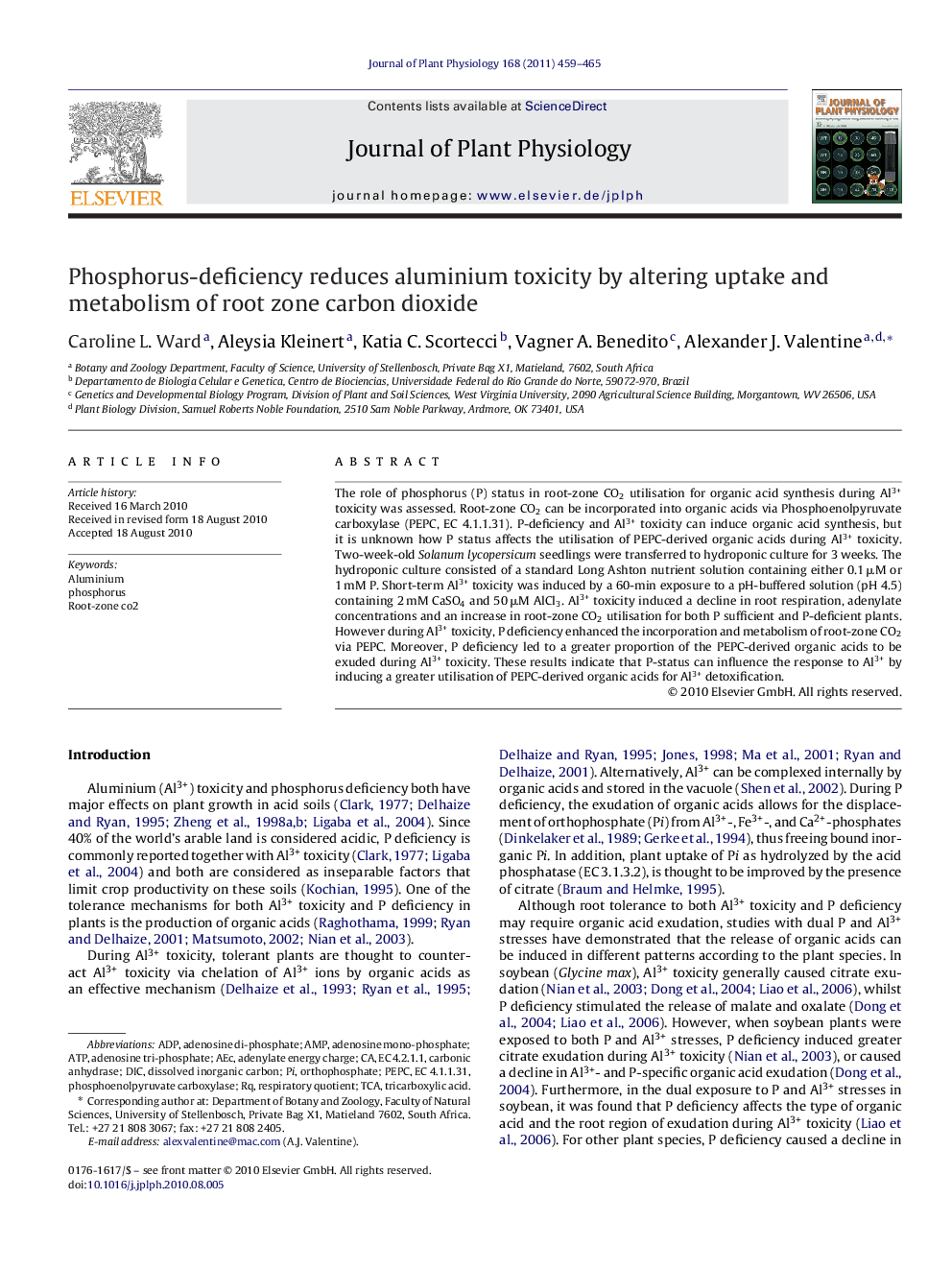| Article ID | Journal | Published Year | Pages | File Type |
|---|---|---|---|---|
| 2056808 | Journal of Plant Physiology | 2011 | 7 Pages |
The role of phosphorus (P) status in root-zone CO2 utilisation for organic acid synthesis during Al3+ toxicity was assessed. Root-zone CO2 can be incorporated into organic acids via Phosphoenolpyruvate carboxylase (PEPC, EC 4.1.1.31). P-deficiency and Al3+ toxicity can induce organic acid synthesis, but it is unknown how P status affects the utilisation of PEPC-derived organic acids during Al3+ toxicity. Two-week-old Solanum lycopersicum seedlings were transferred to hydroponic culture for 3 weeks. The hydroponic culture consisted of a standard Long Ashton nutrient solution containing either 0.1 μM or 1 mM P. Short-term Al3+ toxicity was induced by a 60-min exposure to a pH-buffered solution (pH 4.5) containing 2 mM CaSO4 and 50 μM AlCl3. Al3+ toxicity induced a decline in root respiration, adenylate concentrations and an increase in root-zone CO2 utilisation for both P sufficient and P-deficient plants. However during Al3+ toxicity, P deficiency enhanced the incorporation and metabolism of root-zone CO2 via PEPC. Moreover, P deficiency led to a greater proportion of the PEPC-derived organic acids to be exuded during Al3+ toxicity. These results indicate that P-status can influence the response to Al3+ by inducing a greater utilisation of PEPC-derived organic acids for Al3+ detoxification.
